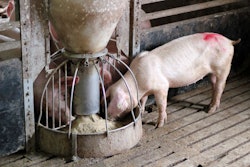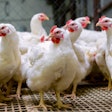
A range of agricultural projects in the East African state looks set to benefit from significant new investments in infrastructure, production and processing facilities, as well as training.
An Israeli firm has announced an investment of US$250 million in the future of agriculture in Tanzania.
According to Farmers Review Africa, the investment will benefit those working in selected agricultural sectors through education and improved management skills.
The source reports that the investment was announced by Aie Holdings. It was founded in the Tanzanian capital, Dar-es-Salaam, by Israeli investor Avi Postelnik.
Of the total funding foreseen, around US$200 million will be invested in infrastructure, and the remaining US$50 million represents working capital.
Already, Postelnik reports, the project has the support of Tanzania Bankers Association, which has identified five banks to form the syndicate. Further funding will be sourced from private equity and international banks.
Under the project, apporoximately 80,000 new jobs will be created through a wide range of investments. These include logistics, solar power, wastewater treatment, field crops, and the production of tropical fruit concentrate. For example, the transportation and logistics divisions will deliver raw materials to processing plants, as well as transporting finished products to the local markets for sale, or to ports for export.
Israeli experts on solar energy will evaluate the various locations with the aim to use this as the only source of power for all the proposed projects.
Education, training as project keystones
For Postelnik, the application of Israeli know-how to employ graduates in management and technical positions is fundamental to the success of these Tanzanian agro-industrial projects.
Advanced education in agriculture in Israel will benefit Tanzanians through periods of special training, reported this source.
Funding will be channeled into facilities across the country. As well as in Dar-es-Salaam and the nearby town of Bagamoyo on the eastern coast, opportunities will be offered in the northern regions of Kagera and Mwanza, and Njombe and Morogoro in the south.
Proposed investments in beef, dairy, poultry, aquaculture
As well as the infrastructure and educational aspects of this project, the funding raised will also go into the construction of large-scale and modern production and processing facilities.
Among the other projects are production of beef, milk and fish, as well as feed mills.
To IPP Media, Postelnik outlined plans for a cattle farm raising 2,500 head for beef. A modern slaughterhouse will process the meat, and clean hides for the beef herd and other farmers in the country. Automatic milking as well as processing and pasteurization plants will support a 1,500-cow dairy herd.
Investments will also be made in poultry farming. Planned are a broiler farm producing 26,000 metric tons (mt) of chickens per year, and layer units with total annual output of 60 million eggs. Linked to these are a hatchery to supply chicks for meat and egg production.
Last but not least, the company plans to set up a tilapia farm. From ponds and lake cages, output is foreseen of around 10,000 mt each year. A hatchery will raise fingerlings for the farm, and a processing facility will produce frozen fillets and other fish products for the domestic market, and for export.
More on AIE Holding
According to the firm’s website, Aie Holding was founded in Tanzania by Avi Postelnik in 2020. Its stated primary goal is to implement an environment-oriented agro-industrial and education project in Tanzania. Projects are planned in West African as well as other East African countries.
Other related operations set up by Postelnik include the Smart Holding Co. Based in Bucharest, Romania, this aims to establish construction and agricultural projects that feature environmental conservation. Also mentioned are interests in real estate in Romania and Hungary.
Food security in Tanzania
Generally, the food supply situation in the East African state is secure, according to the latest update from the United Nations’ Food and Agriculture Organization (FAO).
In April, flooding after a tropical cyclone caused widespread damage to crops across several regions of the country. However, second grain harvests have been above average.
As a result, local supplies of corn are described as “adequate,” and prices are relatively low.
More than 250,000 refugees, mainly from Burundi and the Democratic Republic of Congo, were registered in Tanzania as of June 2021. Unable to work, they are almost totally reliant on humanitarian food aid, according to the FAO.
As well as being a staple food in Tanzania, around 70% of poultry feeds produced on the country’s farms are based on corn — together with protein concentrate — reported the U.S. Department of Agriculture’s Foreign Agricultural Service (FAS) earlier this year. FAS forecasts further growth in poultry output, amounting to 2% next year.

















